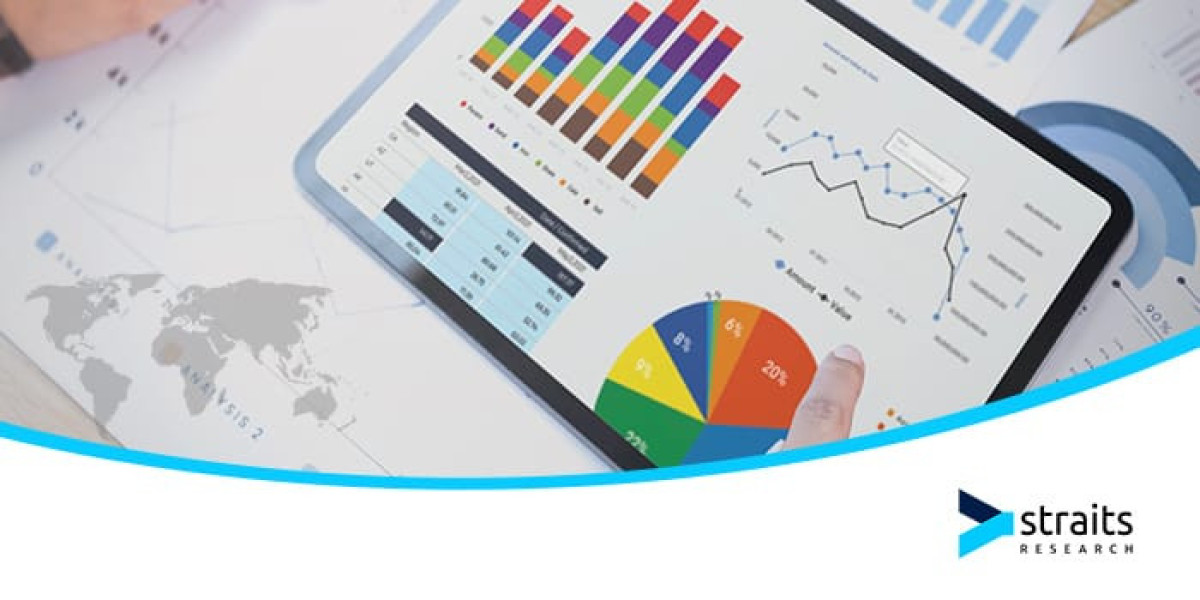In today’s fast-paced global economy, Logistics Security is crucial for ensuring that goods move safely from one point to another, minimizing risks such as theft, loss, and damage. With the increasing complexity of supply chains, the need for robust logistics security measures has never been greater. This comprehensive guide will delve into the various aspects of logistics security, exploring its importance, strategies, and best practices to ensure the safety and integrity of logistics operations.
Understanding Logistics Security
Logistics Security refers to the measures and protocols put in place to protect goods, information, and personnel involved in the transportation and storage of products. This involves safeguarding against theft, tampering, unauthorized access, and other potential threats that could disrupt the supply chain.
Importance of Logistics Security
- Protecting Assets: Logistics involves the movement of valuable goods across various locations. Without proper security, these assets are vulnerable to theft, damage, or loss, leading to significant financial losses.
- Ensuring Business Continuity: Disruptions in the supply chain can have a domino effect, impacting not just the company directly involved but also its partners, customers, and the broader economy. Effective logistics security ensures that operations continue smoothly, even in the face of potential threats.
- Compliance with Regulations: In many industries, maintaining high levels of security is not just a best practice but a legal requirement. Companies must comply with various regulations and standards to avoid penalties and maintain their reputation.
- Customer Trust: Customers trust companies to deliver products safely and on time. Ensuring logistics security helps maintain this trust by protecting the integrity of the goods throughout the supply chain.
- Mitigating Risk: The logistics industry faces numerous risks, including cargo theft, cyber threats, and natural disasters. Implementing strong security measures helps mitigate these risks, reducing the potential impact on business operations.
Key Components of Logistics Security
Physical Security:
Access Control: Restricting access to facilities and transportation vehicles ensures that only authorized personnel can handle the goods.
Surveillance: Utilizing cameras and monitoring systems helps deter theft and enables quick response to any suspicious activities.
Secure Warehousing: Proper storage facilities with advanced security features like alarm systems, locks, and fencing protect goods during storage.
Transportation Security:
Cargo Seals: Using tamper-evident seals on containers and trucks helps ensure that goods are not tampered with during transit.
GPS Tracking: Real-time tracking of vehicles allows for monitoring of the cargo’s location and condition, helping to prevent theft and loss.
Driver Training: Educating drivers on security protocols and emergency response procedures enhances the overall security of the logistics process.
Information Security:
Data Encryption: Protecting sensitive information such as shipment details, customer data, and inventory levels from cyber threats is essential for logistics security.
Cybersecurity Protocols: Implementing strong cybersecurity measures helps prevent unauthorized access to logistics management systems and sensitive data.
Supply Chain Transparency: Ensuring that all parties involved in the supply chain have access to accurate and timely information reduces the risk of fraud and other security breaches.
Risk Management:
Risk Assessment: Regularly assessing potential risks in the supply chain allows companies to identify vulnerabilities and implement appropriate security measures.
Contingency Planning: Having a plan in place for potential disruptions, such as natural disasters or security breaches, ensures that the company can respond quickly and effectively.
Insurance: Securing insurance coverage for cargo and other logistics assets helps mitigate financial losses in case of theft, damage, or other incidents.
The Role of Technology in Logistics Security
Technology plays a pivotal role in enhancing logistics security by providing tools and solutions that help monitor, protect, and manage logistics operations more effectively. Key technological advancements include:
IoT Devices:
Smart Sensors: These devices can monitor the condition of goods during transit, such as temperature, humidity, and vibration levels, ensuring that products remain within safe parameters.
Real-Time Alerts: IoT devices can send instant notifications to logistics managers if any irregularities or security breaches are detected, allowing for quick action.
Blockchain Technology:
Secure Transactions: Blockchain provides a secure, transparent, and tamper-proof ledger for recording all transactions in the supply chain, reducing the risk of fraud and ensuring data integrity.
Traceability: Blockchain enables end-to-end traceability of goods, ensuring that all parties involved can verify the origin and journey of products.

Advanced Analytics:
Predictive Analytics: By analyzing historical data, companies can predict potential security risks and take proactive measures to prevent them.
Machine Learning: Machine learning algorithms can detect patterns and anomalies in logistics data, helping to identify potential threats before they materialize.
Drone Surveillance:
Aerial Monitoring: Drones can be used to monitor large facilities, such as warehouses and distribution centers, providing real-time surveillance and quick response capabilities.
Perimeter Security: Drones can patrol the perimeter of logistics facilities, detecting any unauthorized access or breaches.
Best Practices for Logistics Security
Implementing best practices is essential for maintaining high levels of security in logistics operations. Some of these best practices include:
Regular Security Audits:
Conducting regular security audits helps identify weaknesses in existing security measures and ensures that protocols are up-to-date with the latest threats.
Employee Training:
Training all employees on security protocols, including recognizing potential threats and responding to security incidents, is critical for maintaining a secure logistics environment.
Collaboration with Partners:
Collaborating with supply chain partners to establish and maintain consistent security standards ensures that all parties are aligned in protecting the goods throughout the logistics process.
Utilizing Secure Transportation Routes:
Planning and using secure transportation routes reduces the risk of theft and other security incidents during transit.
Implementing Redundant Security Measures:
Redundancy in security measures, such as multiple layers of surveillance and access control, ensures that even if one security protocol fails, others are in place to protect the goods.
Challenges in Logistics Security
Despite the advancements in technology and best practices, logistics security faces several challenges:
Global Supply Chain Complexity:
The global nature of modern supply chains increases the complexity of logistics security, as goods may pass through multiple jurisdictions with varying security standards and regulations.
Evolving Threats:
Security threats in logistics are constantly evolving, with criminals adopting new tactics to breach security measures. Keeping up with these evolving threats requires continuous investment in new technologies and training.
Cybersecurity Risks:
As logistics operations become more digitized, the risk of cyber attacks increases. Protecting logistics management systems and sensitive data from hackers is a growing challenge for the industry.
Cost Considerations:
- Implementing and maintaining high levels of security can be costly, particularly for smaller logistics companies. Balancing the need for security with cost efficiency is a significant challenge.
The Future of Logistics Security
The future of logistics security will be shaped by ongoing technological advancements, regulatory changes, and the evolving nature of global supply chains. Key trends to watch include:
Increased Use of AI and Machine Learning:
AI and machine learning will play an increasingly important role in logistics security, with applications ranging from predictive analytics to automated threat detection.
Expansion of Blockchain Technology:
Blockchain’s role in ensuring supply chain transparency and security is likely to expand, with more companies adopting this technology to protect their logistics operations.
Integration of Autonomous Vehicles:
Autonomous vehicles, including drones and self-driving trucks, will become more prevalent in logistics, bringing new security challenges and opportunities.
Enhanced Cybersecurity Measures:
As cyber threats continue to grow, the logistics industry will need to invest in more advanced cybersecurity measures to protect digital assets and information.
Focus on Sustainability:
The logistics industry will increasingly focus on sustainability, with security measures designed to protect not just assets but also the environment.
Conclusion
Logistics Security is a critical aspect of modern supply chain management, ensuring that goods, information, and personnel are protected from a wide range of threats. By implementing robust security measures, leveraging advanced technologies, and following best practices, companies can safeguard their logistics operations and maintain business continuity in an increasingly complex global environment.
FAQs
- What is Logistics Security?
Logistics Security refers to the measures and protocols designed to protect goods, information, and personnel involved in the transportation and storage of products within the supply chain.
2. Why is Logistics Security important?
Logistics Security is essential for protecting assets, ensuring business continuity, complying with regulations, maintaining customer trust, and mitigating risks in the supply chain.
3. How does technology enhance Logistics Security?
Technology enhances logistics security through IoT devices, blockchain, advanced analytics, drone surveillance, and more, providing real-time monitoring, secure transactions, and predictive threat detection.
4. What are the main challenges in Logistics Security?
Challenges include the complexity of global supply chains, evolving security threats, cybersecurity risks, and the costs associated with implementing and maintaining security measures.
5. What is the future of Logistics Security?
The future will see increased use of AI, blockchain, autonomous vehicles, enhanced cybersecurity measures, and a focus on sustainability in logistics security.
6. How can companies improve Logistics Security?
Companies can improve logistics security by conducting regular audits, training employees, collaborating with partners, utilizing secure transportation routes, and implementing redundant security measures.



